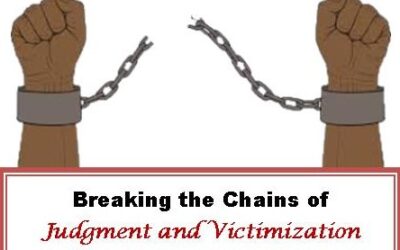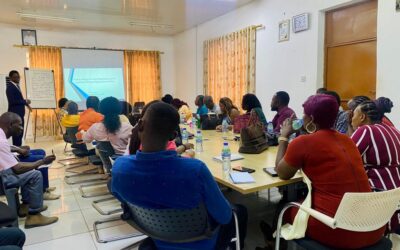In modern democracies, the police force has the primary responsibility of protecting lives and property as well as maintaining law and order. In conducting these functions, it must do so with absolute respect for the rights of citizens. Where a police force performs its functions independently, it becomes a source of confidence, safety and delight to all. The reverse may have adverse implications for the safety and security of persons, investment climate, as well as the country’s human rights credentials.
Prior to the civil conflict in the country, the Sierra Leone Police (SLP) were infamous for their egregious violations of human rights, mostly carried out on the orders of politicians. The one-party dictatorship produced a partisan police force that was used to repress opposition politicians and eliminate dissenting voices. Worse still, and perhaps part of the relic of the colonial administration, the force was largely alienated from the civilian population it was created to serve. Torture, extra-judicial killings, prolonged pre-trial detention and cruel, inhumane and degrading treatment by the police reportedly occurred on a regular basis. Since the end of the conflict, however, there have been renewed efforts to rebrand the image of the police force in order to make it function in a manner that inspires public confidence and trust. New policing methods and training programs have been introduced, as well as progressive increases in budget allocations to the institution.
Unfortunately, recent allegations of unlawful killings and other serious human rights violations by the police have raised questions about the commitment of the leadership to foster accountability within the institution. Until a mechanism that truly holds police officers to the same standard of accountability as civilians is established, the public jury will continue to brood over the commitment of the SLP’s leadership to bring the institution in line with the requirements of 21st century policing.
Since December 2007, there has been a string of incidents of alleged unlawful killings by personnel of the Operational Support Division (OSD) of the SLP and, quite astonishingly, only one of the alleged perpetrators have been indicted and brought to justice. In December 2007, police personnel shot at demonstrators protesting against a diamond mining company in Koidu, eastern Sierra Leone, resulting in the death of two protesters. No police officer has been brought to justice for those killings. Another incident in September 2011 in which police personnel shot dead an unarmed motorcycle rider and wounded several others during politically-motivated violence in Bo has also passed without anyone brought to justice, despite a recommendation by Presidential Committee set up to investigate the incident. The civilians who were allegedly responsible for the acts of violence are currently facing trial, while the police personnel appear to have been protected from legal action. Another incident in which police personnel shot dead a woman and injured at least six others in Bumbuna, northern Sierra Leone, following a protest by mine workers was investigated by the Human Rights Commission of Sierra Leone (HRCSL), who recommended that the police “identify and investigate all personnel involved in the response” to the protest. The report of the HRCSL was impugned by the leadership of the police and (to date) most of its critical recommendations have not been implemented.
In 2012, two young men were shot dead by police personnel at Calaba Town, east of Freetown. The police claimed that their victims were mistaken for robbers, even though there is still no evidence that they were armed. The incident led to tension and skirmishes between youths and the police. At one point, it required the intervention of the President to pacify the angry youths. Again, no one has been held accountable for those killings. In the same year, another motorcycle rider was shot dead by police personnel at Goderich, west of Freetown. Again, the police claimed that the motorcycle rider was mistaken for a robber. The alleged perpetrator was later arrested and charged with murder, but the matter has been committed to the high court under the charge of manslaughter. There have also been alleged unlawful shooting incidents that lead to at least one death [again] in Koidu and Ferengbeya for which no serious investigations have been carried out, or alleged perpetrators brought to justice.
In May 2013, the police also shot dead a U.S-based Sierra Leonean who was on vacation in Sierra Leone because he allegedly refused to surrender a firearm he was carrying. Media interviews with bystanders revealed that the victim refused to hand over the firearm to the police, instead insisting that he would only “drop it” at a police station. As he was walking away, he reportedly fired two shots into the air. He was subsequently shot in the back by police personnel who had supposedly been sent to the scene to disarm the man. The matter is still being investigated, but the Inspectoral-General of Police has plainly justified the action of his officers. I would be surprised if any police officer was held accountable for the incident.
It is extremely disturbing that the state is overseeing such a widening impunity gap for the police, while other countries are closing such breaches in their law enforcement agencies. Impunity breeds illegality, which in turn fuels violence. Across the globe, the vogue nowadays is to promote accountability within the police and encourage increased civilian monitoring of the institution. The body that currently looks into complaints against the police, the Complaint Discipline and Internal Investigations Department (CDIID), consists exclusively of police personnel. While it has periodically taken disciplinary action against officers for professional misconduct, it has never truly investigated and published its findings on any of the serious human rights violations catalogued above.
Thankfully, the Internal Affairs Ministry in collaboration with the Sierra Leone Police is planning on introducing a bill for an Independent Police Complaints Board in parliament shortly. If the bill is passed into law, a civilian-run body would be established to fully investigate alleged police violations against civilians. The body would have the power, among others, to recommend prosecution for police officers deemed to have committed human rights violations; as well as offer compensation for such acts committed against civilians. Beyond this, it is also necessary to reform the legal framework of the police and amend the Constitution. The Police Charter of 1964 is clearly past its sell-by date, while the management structure of the police as stipulated in the Constitution is not compatible with the demands of modern democratic policing. These documents are currently contributing to the ever growing public doubt in the extent of the SLP’s independence. As long as the Vice President continues to preside over the Police Council – the highest decision-making body of the police – with the Internal Affairs Minister acting as his Secretary, it is hard to imagine the police functioning as a truly independent body.
Efforts at establishing an independent police complaints panel are, therefore, a laudable effort, but as with many brilliant initiatives in Sierra Leone, effective implementation will be a key challenge. If it is allowed to function as a truly independent complaints board, it could help tighten the impunity gap and restore public trust and confidence in the police.



